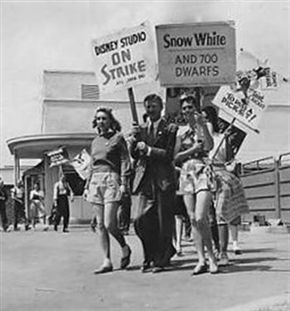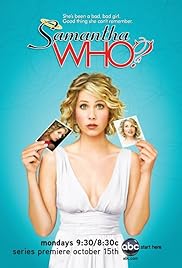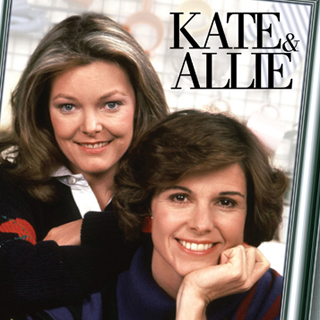Written Without a Union by Bridger Cunningham
A writer's strike has been diverted! Per Deadline, ATPMP and the WGA have defined a bridged deal to cover healthcare issues and pay to accommodate limited seasons. This is a welcome relief as we take a retrospective look back on the last four:
1960: 

The second-longest strike occurred inside this calendar year from January 16-June 10, only outlived by the writer's strike of 1988. This strike rooted from the writer's right to receive a share of revenue of the studios from the lease or sale of movies to television. No known effects occurred to television programming as the target was the motion picture studios. The eight studios active that year -- Universal, Warner Bros., Allied Artists, Columbia, Paramount, 20th Century Fox and Walt Disney pictures -- hammered out an agreement to compensate writers for movies broadcast on television. Their agreement arbitrated the following:
1. The studios pay out the writers' pensions and health funds $600K.
2. Motion pictures released pre-1960 which aired on non-paid television would pay 5% of the studio's profits to writers under the caveat they were not being shown on pay television.
3. Motion pictures released post-1960 which aired on non-paid television would pay 2% of the studio's profits to writers under the caveat they were not being shown on pay television.
4. Minimum wages for studio writers increased $350 a week, plus 10% bonuses for the following 24 months, furthered by 5% bonuses for the following 18 months.
5. Television writers would receive a 100% minimum wage increase for the first 24 months, followed by another 100% increase for the following 24 months.
6. Writers for low budget TV shows received raises from $835 to $950 per week.
7. High budget TV shows increased writers' wages from $1,100 to $1,200 per week.
8. All TV writers received a 4% royalty domestically and internationally on syndication in perpetuity.
9. A health and welfare fund was established for all TV writers.
Damage to Television Viewing: None Known. This strike acted as the catalyst for launching more programming and proved lucrative as primetime television shows broadcast as many as 39 shows per season in 1960. Source: [1]
1981:
A three-month writer's strike occurred regarding WGA's share of revenue from cable television and home videos.
Damage to Television Viewing: None known, as this did not affect primetime and daytime broadcast network shows. Source: [2]
The WGA went on strike for 155 days from March 7-August 7, 1988 in the longest television strike to date. Writers hoped to gain the following:
1. Residual for hour-long shows (producers, claiming syndicated reruns of these shows were performing poorly in syndication, wanted a softened, percentage-based formula; writers wanted a residual hike)
2. Expanded creative rights (the writers wanted consultation on the choice of actors and directors for some projects)
3. Cost cuts in other areas (a producers' demand)
Several television shows straddled through Daytime, Primetime and Late Night broadcasting were affected gravely. The hastened 1989 cancellations of CBS' Kate and Allie, as well as ABC's Moonlighting were attributed to the long hiatus the strike caused in 1989. NBC's Cheers lost an episode and finished the following season with 25 episodes, additional NBC cuts reduced the Cosby show and LA Law two episodes at 24 and 20 respectively, and ABC lost three episodes of acclaimed Thirtysomething, finishing at 21 for the season. Many primetime scripted shows were delayed as long as November vs. their September premiere dates.
Most grievous was the continual damage inflicted on Daytime Soap Operas as the showrunners ceased work. In their place, networks replaced them with non-union (scab) writers. Quality and stories tanked, leading to the ultimate decline in one of America's sturdiest institutions. In 1988, 12 soap operas covered the airwaves on ABC, NBC and CBS. That number dwindled to a current 4 over the three networks decades later.
Damage to Television Viewing: Considerable. Several shows referenced experienced slow recoveries or hastened their departure due to delays. Lost revenue from the strike is estimated at $500M. Sources: [2] [3] [4] [5]
2007-08:




The most recent Writer's Strike hit viewers where they lived as it occurred midway through the 2007-08 television season. It lasted from November 5, 2007 through February 12, 2008 and sought increased funding for writers in comparison to the profits of the larger studios. It was a buckshot aimed at the Alliance of Motion Picture and Television Producers (AMPTP). Much of the strike targeted streaming and alternative media such as Youtube, which launched to prominence in 2006.
All scripted production was expected to shut down by December 19, 2007, abbreviating several shows' episodes produced. Primetime viewing on the five networks was affected as only FOX maintained due to the popularity of reality TV platform American Idol. In absence of scripted shows, reality TV shows proliferated. 4th Place NBC was hit the hardest as it lost 11% of its target demographic. Promising ABC scripted fares Pushing Daisies, Samantha Who and Dirty Sexy Money never recovered their modest launches in 2007, with all ending midway through the 2008-09 season. Eleven shows experienced delays due to the strike, and an astounding 54 scripted shows experienced shorter seasons.
Damages from the Strike: Ongoing. The 2006-07 season experienced a soft decline in viewers. That accelerated with every descending year as averages have never cauterized Nielsen hemorrhages. Sources: [2] [6] [7]
2017: 

WGA again had loomed threats of striking if they could not come to an agreement over wages and contractual obligations with AMPTP by 11:59 PM on May 1, 2017. The basis of grievance wass regarding abbreviated seasons for scripted fares as popularized by alternative streaming platforms. Network television shows have held the staple 22-24 episodes per season since the 1990's, with recent trends diminishing to as few as 8-13 episodes per season.
Forecasted Damage: None; Strike Averted! Source: [8]
Sources:
[1] https://en.wikipedia.org/wiki/1960_Writers_Guild_of_America_strike
[2] http://www.cnn.com/2013/08/26/us/writers-guild-of-america-fast-facts/
[3] http://tvtropes.org/pmwiki/pmwiki.php/Main/TVStrikes
[4] http://televisionista.blogspot.com/2008/01/how-writers-strike-1988-cut-tv-shows.html
[5] https://en.wikipedia.org/wiki/1988_Writers_Guild_of_America_strike
[6] https://en.wikipedia.org/wiki/2007%E2%80%9308_Writers_Guild_of_America_strike
[7] https://en.wikipedia.org/wiki/Effect_of_the_2007%E2%80%9308_Writers_Guild_of_America_strike_on_television
[8] http://deadline.com/2017/05/writers-strike-talks-uneasy-deadline-1202080850/


